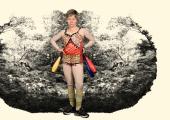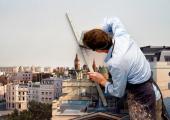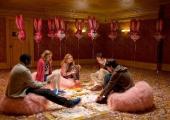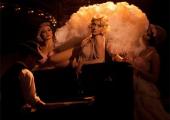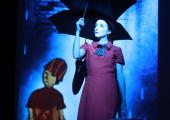Vernon God Little, Young Vic
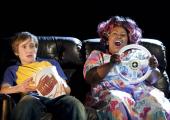
The grubbiest of Booker Prize-winners gets its face washed in this adaptation
A whiff of excrement hangs around DBC Pierre’s Booker Prize-winning Vernon God Little. It’s a novel that likes to get right up into the crevices of society and then inhale deeply. Written in an anarchic, freewheeling American patois, it’s the inner voice of Vernon himself (and Pierre’s brutal way with a simile) that plays shock and awe with the reader, delighting many and appalling more. The loss of narrative voice would seem enough to deter any would-be theatrical adaptor, but in 2007 Tanya Ronder and the Young Vic took up the challenge. The result (newly revised) now makes a return – shotgun in one hand, the other down its trousers.

